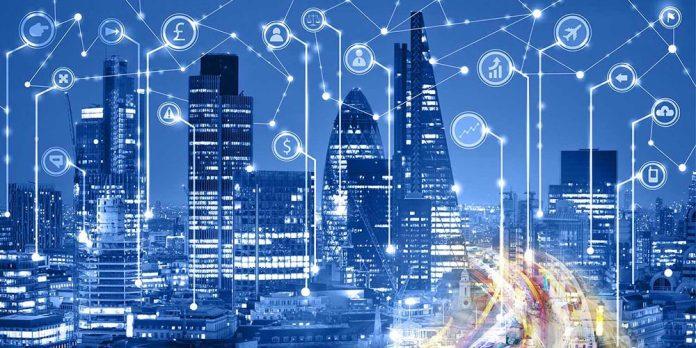Smart cities are no less than a remedy to overcome different kinds of urban challenges. Cities act as a center for economic advancements that nurture innovation and creativity. They are dynamic places where different people unite to begin their lives, make careers, and enjoy enormous leisure activities.
Issues like polluted air, congested roads, scarce water resources, and ineffective waste management beset urban landscapes.
A big data program is playing a major role in managing smart cities. City managers will have the potential to access insights to make data-driven decisions. Big data will bring a great opportunity to run sustainable and active cities.
How Data Science is Making Cities Smarter and Extremely Efficient?
The realm of data science is transforming infrastructure development and urban planning, fueling the worldwide progress of smart cities.
The combination of urban planning and data science has resulted in innovative advancements, enabling efficient resource management, enhanced sustainable development, and improved quality of life for urban residents.
The evolution of data analytics offers unprecedented opportunities for urban landscapes to increase sustainability and resilience. Effective decision-making will need to utilize data-based insights. City management authorities will use data to boost traffic flow, manage energy distribution reduce waste, and strategize for smarter infrastructure.
In smart cities, the data science industry connects to a new WiFi network. This is a common issue that affects network security on Mac.
Need for Data Science in Smart Cities
The effects of climate change are impacting every sector of society.
Researchers are actively engaged in making efforts to curb CO2 emissions while enhancing human well-being. Smart cities driven by data prioritize helping urban residents across diverse spheres, in addition to the reduction of CO2 emissions.
- Generate more energy and consume less. The objective of smart city technologies is to secure more energy in multiple ways.
- Make sure there is cleaner air for urban residents. Smart urban planning authorities will utilize technologies to assess air quality and comprehend the origins of pollution.
- Improved transportation. The goal of smart city data analysis and systems is to maximize mobility in urban places. Data-driven solutions will help pinpoint challenges in transportation systems, reduce congestion, and give real-time traffic updates.
- Improved waste management. Data from several ecosystems will be gathered for garbage recycling, repair, and reuse with the help of AI-driven city management. Big data will assist in managing waste delivery channels and lowering waste production.
- Better public safety and quality of life. Security teams using AI-driven cameras in smart cities will be able to monitor real-time events across streets and buildings thanks to data privacy.
Challenges Faced by Cities During Implementation of Data-Driven Solutions
Every day, terabytes of data can be generated, which is crucial for boosting productivity in smart cities. Big data, however, presents a significant storage challenge to city management as well as residents. Cyberattacks are commonplace on the systems that generate data, process it, and, lastly, store it.
Companies, governments, and individuals face a significant challenge as a result of the constant changes in local and international regulations pertaining to data protection and sharing. Changes in regulation are necessary as urban technology advances.
The numerous gaps in the current legislation prevent smart city plans from being implemented quickly. More efficiency and good connectivity are required, but big data is not being used intelligently at the moment.
Although the future of data science is bright, but only when the solutions are created and implemented by talented data scientists.
Conclusion
Using data science combined with urban planning creates amazing opportunities for creating more hospitable, efficient, and sustainable cities. Embracing the power of data science becomes essential for igniting innovation and driving positive changes in city life.
Data science specialists are the key to making cities smarter, more flexible, and more resilient. Their skills are crucial to building cities that successfully address the many demands of their residents and guarantee a brighter future for everybody.
